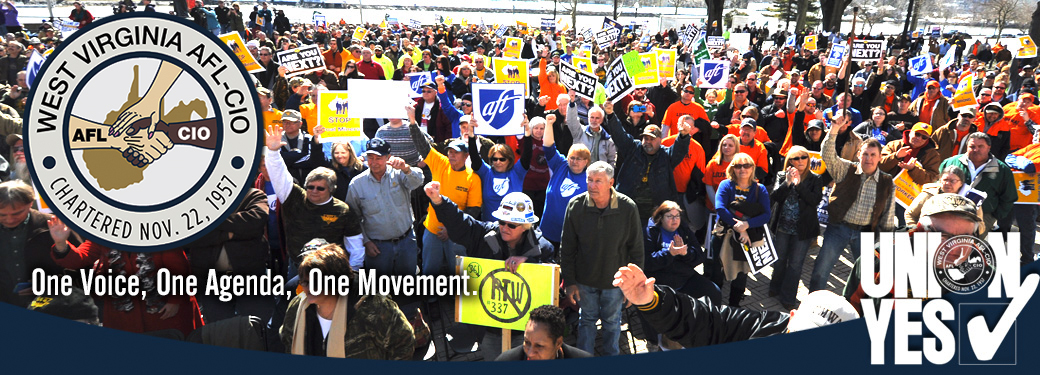While Governor Jim Justice is loosening restrictions on bars, restaurants and retail facilities in the state, the West Virginia Legislature continues to operate under a cloak of darkness, locking out the public without offering even an online opportunity for participation.
“As representatives of working families throughout West Virginia, the West Virginia AFL-CIO and its affiliates cannot sit idly by and let the legislative majority trample the rights of West Virginia citizens,” WV AFL-CIO President Josh Sword said. “We understand the critical need to observe social distancing requirements in order to keep everyone safe, but the legislative majority is using these personal contact limits to shut down interaction with the public altogether.
“The majority party is seizing the day, quickly moving on a rapid succession of bills that harm workers and benefit the rich corporations that funded their campaigns, and that’s unacceptable.”
Today the WV AFL-CIO sent a letter to Governor Justice, Senate President Craig Blair and House Speaker Roger Hanshaw spelling out in detail their lack of transparency and calling for legislative leaders to comply with the state’s open meeting requirements.
“If the legislative leadership continues to block the public, we’ll be forced to go to court,” WV AFL-CIO Secretary-Treasurer Andy Walters said. “We don’t want to resort to that, but we also can’t allow the Legislature to operate behind closed doors.”
For the better part of a year, the State Capitol has remained closed due to the COVID pandemic. The public is prohibited from entering unless invited to a meeting, according to the Capitol Police.
During this 2021 regular legislative session, House and Senate galleries are largely empty, and there is no method for anyone to directly observe the proceedings.
The House of Delegates has provided video streaming of the daily floor sessions for several years, but only audio streaming from its four committee rooms, while the Senate has provided video streaming of not only floor sessions, but also committee meetings, which are archived on the Legislature’s website.
Because of the lack of space in three of the four House committee rooms, all House committee meetings are now divided between the House chamber and the East Wing Government Organization Committee Room (215 E), which is large enough to allow social distancing.
“Keep in mind, the House leadership has had months to work on adding equipment for video interaction, and the Governor has received billions of dollars in federal aid related to the pandemic, yet nothing was done,” Sword noted. “But here’s the real head-scratcher: Because no video of committee meetings in 215 E is available, the House leadership decided that when committee meetings take place in the chamber, streaming would also be limited to just audio, even though the chamber is fully equipped to stream video. That makes no sense.”
Interested members of the public are left trying to decipher from the audio streaming (which from 215 E is often weak and spotty) which members are speaking (chairs tend to refer to the members by district number rather than name) and to whom they are addressing their questions or comments.
Meanwhile, the House has changed its rules to discourage public hearings, leaving it to the discretion of the chair. In just the first week of the legislative session, the House Government Organization Chair denied a request by a member for a public hearing on legislation affecting more than 100,000 people in more than 50 different professions.
“A lack of public hearings combined with late postings of committee agendas leaves the average person with zero ability to follow what’s going on at the Statehouse,” Walters said.
The WV AFL-CIO’s letter notes that there is a state statute laying out public meeting standards, which the Legislature is currently not following, and that none of the governor’s COVID executive orders reverse that statute.
“While this pandemic poses serious challenges, we know there are venues at the Capitol that would allow in-person meetings with social distancing,” Sword said. “On top of that, we have highly skilled, licensed electricians and communications technicians among our membership who would be happy to assist with the installation of needed equipment to allow for video streaming and online participation.
“West Virginia citizens deserve a transparent and open government, and we will continue to fight to ensure that.”
